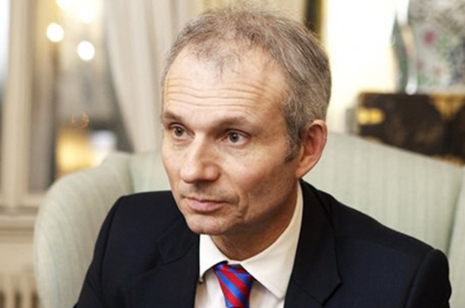The sides discussed the process of settlement of the Nagorno-Karabakh conflict and the current situation on the contact line of Azerbaijani and Armenian troops.
In early November, Lidington visited Armenia and Azerbaijan.
During his visit to Azerbaijan, the British minister met with President Ilham Aliyev, Foreign Minister Elmar Mammadyarov, Deputy Prime Minister, Chairman of the State Committee for Refugees and IDPs Ali Hasanov, chairman of the Azerbaijani community of Nagorno-Karabakh region of Azerbaijan Public Association Bayram Safarov, and was informed about the realities of the conflict.
During the meetings in Baku, he said that the Nagorno-Karabakh conflict lasts for more than 20 years and is a human tragedy.
“Britain is considering ways out of the situation and thinks about what kind of assistance can be provided for the settlement of the conflict,” he said after the visit. “We can not dictate the sides how to solve the problem, but we can help in resolving the conflict by various proposals and initiatives.”
British minister also said that the solution to the Nagorno-Karabakh conflict is a priority for international organizations.
The conflict between the two South Caucasus countries began in 1988 when Armenia made territorial claims against Azerbaijan.
As a result of the ensuing war, in 1992 Armenian armed forces occupied 20 percent of Azerbaijan, including the Nagorno-Karabakh region and seven surrounding districts.
The two countries signed a ceasefire agreement in 1994. The co-chairs of the OSCE Minsk Group, Russia, France and the US are currently holding peace negotiations.
Armenia has not yet implemented four UN Security Council resolutions on the liberation of the Nagorno-Karabakh and the surrounding regions.
More about:















































